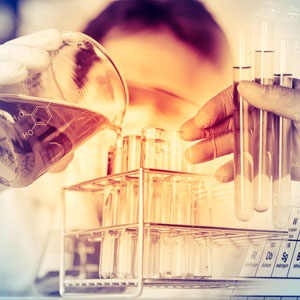
Separate Sciences (Y10-11)

Our Separate Sciences course takes the Combined Science approach of being exciting and relatable, but really delves into a deeper understanding of the science world. Students follow the new Edexcel 9-1 grade specification, which explores the three science strands of Biology, Chemistry and Physics in closer detail, giving students a really high-quality scientific training. The course follows the CIS ethos of student-centred learning. Students cycle through inquiry projects where learning is authentic and connected to real-world issues and problems. Students not only gain the knowledge needed to master the three sciences, but also acquire skills in independence and critical scientific thinking.
Biology explores the world around us, from the smallest molecules to the biggest ecosystems. Separate scientists will gain extra knowledge on how the biological world works, covering topics such as the brain, food security, climate change, Darwinism, monoclonal antibiotics and genetic modification. These topics fit into the following inquiry units: ‘Food security’; ‘Gene and Proteins’; and ‘Responding to internal/external stimuli’.
Physics is a course founded on practical investigations into the laws and workings of the universe. Students will investigate how the universe works on scales ranging from the atomic to the galactic. As well as core units on forces and energy, motion, waves and light, radioactivity and electromagnetism, students will explore astronomy and their core subjects in greater detail. Student-centred units are based around statements of inquiry such as: "There are environmental consequences to developing electrical energy production to meet the needs of an expanding global population."
Chemistry is the study of the composition, behaviour and properties of matter, and of the elements of the Earth and its atmosphere. Topics covered include states of matter and mixtures, chemical changes, extracting metals and equilibria, groups in the periodic table, rates of reaction and energy changes, and fuels and Earth science. Student-centred units are based around statements of inquiry such as: "Transition metals impact the workings of our bodies," and investigations on the chemistry of electroplating in jewelry design.
Slide right to see full table as required
| Term 1a | Term 1b | Term 2a | Term 2b | Term 3a | Term 3b | |
| Biology Topics | SB Crops and pests (topics 4 and 5) SB Food security (topics 1, 6, 8, 9) |
SB Genes and protein synthesis (topics 3, 4, 5) | SB Genes and protein synthesis (topics 3, 4, 5) SB Responding to external stimuli (Paper 1, topic 2) |
SB Responding to external stimuli (Paper 1, topic 2) | SB Responding to internal stimuli (Paper 2, topic 7) | Revision |
| Chemistry Topics | SC13 Transition metals, alloys and corrosion SC14 Quantitative analysis |
SC15 Dynamic equilibria and calculations involving gases SC16 Chemical cells and fuel cells SC22 Qualitative analysis |
SC23 Hydrocarbons SC24 Polymers SC25 Alcohols and carboxylic acids |
SC26 Bulk and surface properties of matter including nanoparticles | Revision | Revision |
| Physics Topics | SP2 Forces and motion SP4 Waves |
SP6 Radioactivity SP7 Astronomy (whole topic) |
SP9 Forces and their effects SP11 Static electricity (whole topic) |
SP13 Electromagnetic induction SP14 Particle model |
SP15 Forces and matter | Revision |
| Events | RS biology week Biology Olympiad Introduction |
RSC Chemistry Week | British Science Week Prepare activities |
British Science Week Deliver activities |
The Big Bang Fair Prepare activities |
The Big Bang Fair Deliver activities |





 Like us on Facebook
Like us on Facebook Follow us on Instagram
Follow us on Instagram enquiries@chesterinternational.co.uk
enquiries@chesterinternational.co.uk



